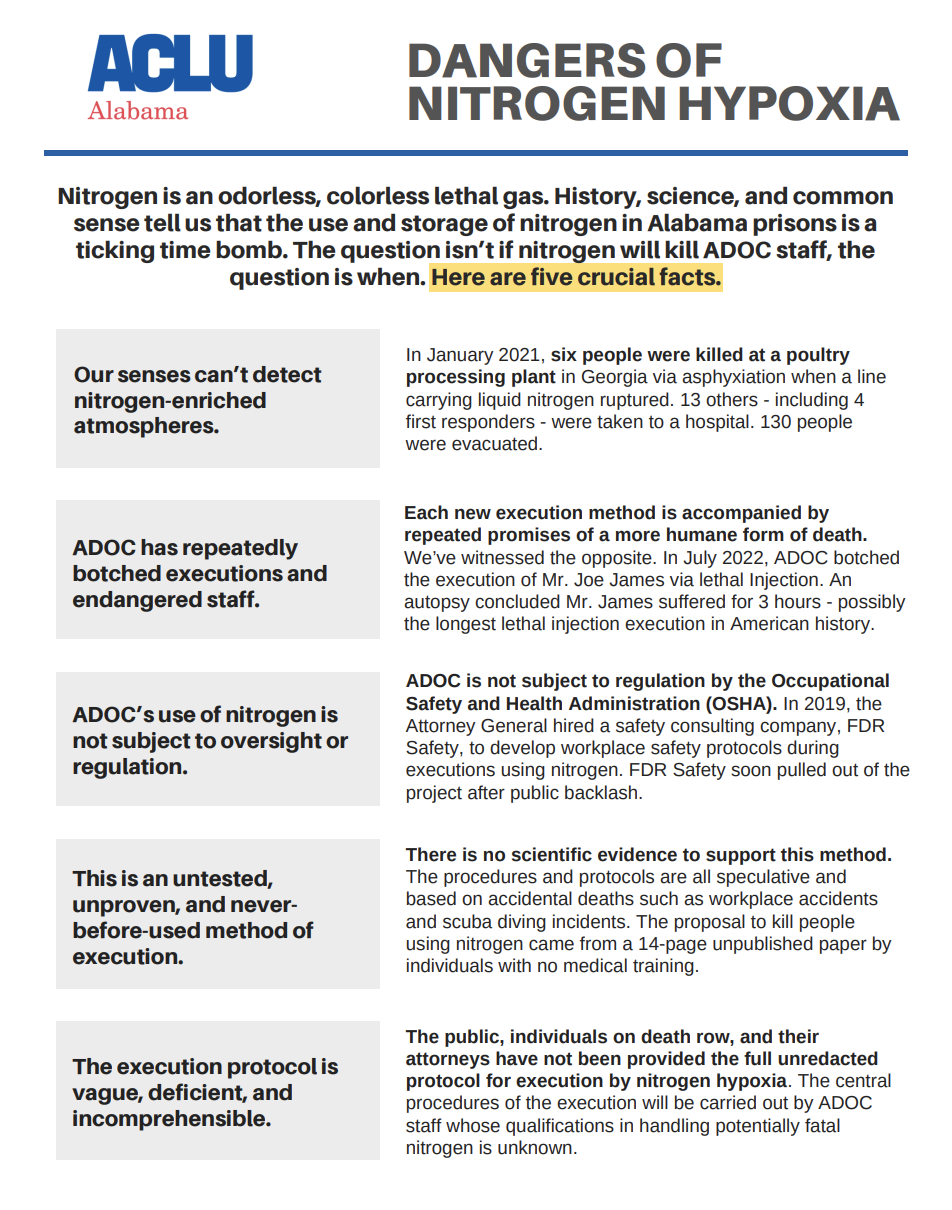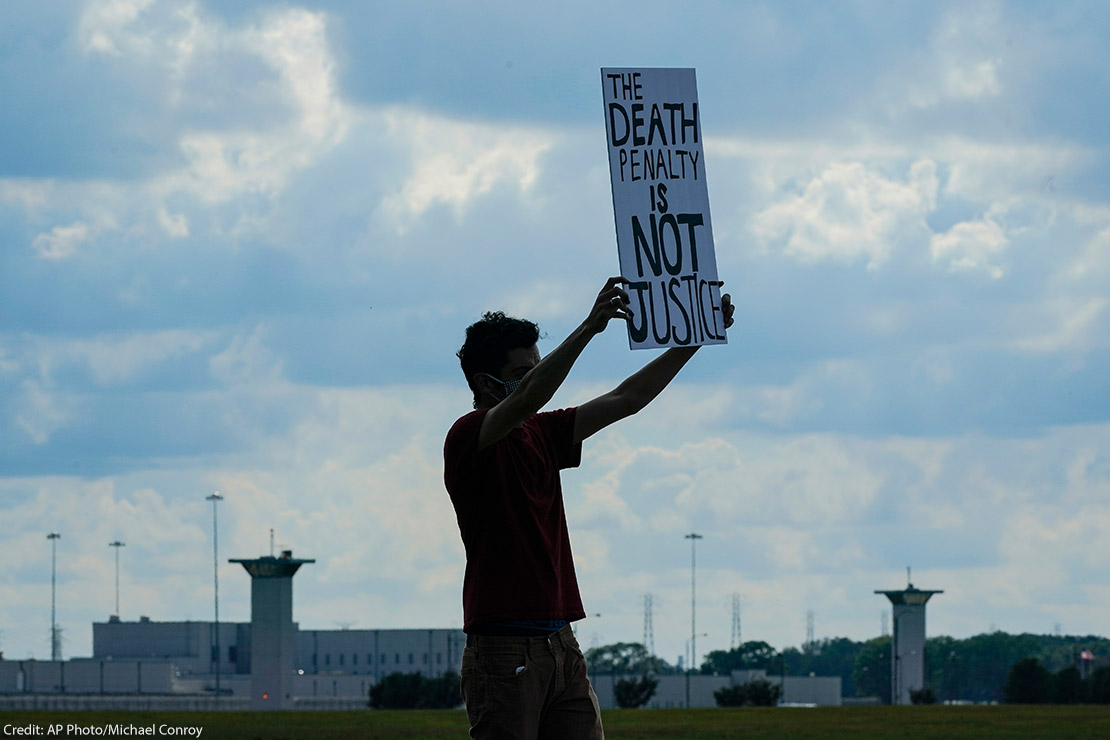On January 25, the state of Alabama executed Kenneth Smith using nitrogen hypoxia, subjecting him to inhale pure nitrogen through a mask until he suffocated. Despite state claims that it would be a painless death, witnesses reported Mr. Smith shook, convulsed, writhed, and gasped for minutes until he was pronounced dead at least 22 minutes after the execution began, though just how long it took is unknown since Alabama closed the execution curtain before the official time of death.
Earlier this month, United Nations human rights experts warned that the untested execution method might result in a painful and humiliating death. Moreover, it is likely to constitute torture, violating international human rights treaties ratified by the U.S. Ahead of the execution, the U.N. High Commissioner for Human Rights, Volker Türk, urged Alabama state authorities to cancel the execution.
Veterinary scientists, who have carried out laboratory studies on animals, have even largely ruled nitrogen gas out as a euthanasia method due to ethical concerns. Authorities in the U.S. and Europe have issued guidelines discouraging its use for most mammals, citing potential distress, panic, and seizure-like behavior.
Mr. Smith shouldn’t have even been on death row. In 1996, a jury of his peers voted 11-1 for life in prison for his role in a 1988 killing. However, the sentencing judge imposed the death penalty anyway. If Mr. Smith were tried today, that could not happen, as Alabama no longer permits a judge to override a jury’s decision to sentence someone to life without parole.
In 2022, the Alabama Department of Corrections attempted to execute Mr. Smith by lethal injection but failed to find a suitable vein, calling it off after hours of needle insertions.
Killing Mr. Smith, or any other person, by nitrogen gas is cruel and inhumane. Plans to do so should have been abandoned for those reasons alone – but there are others. Nitrogen gas presents a grave danger to prison staff, incarcerated people, and the public. The Alabama Department of Corrections is aware of the risks, evident in requiring Mr. Smith’s spiritual adviser to sign a waiver acknowledging he could be at risk of gas exposure for for being with Mr. Smith at the execution.
A recent tragedy at a Gainesville, Georgia poultry plant underscores the dangers of nitrogen gas. Following a leak that filled a freezer room, five workers entering it collapsed and died. A sixth worker was pronounced dead at the hospital. After evacuating 130 workers, an additional 13 people, including four first responders in safety gear, required hospitalization and intensive care.

The tragedy in Georgia is no outlier. The U.S. Chemical Safety Board reports an annual average of 8 deaths and 5 injuries from nitrogen exposure. History, science, and common sense tell us that storing and using nitrogen in Alabama prisons, or elsewhere, is a ticking time bomb. The question isn’t whether nitrogen gas will kill staff and incarcerated people; the question is when.
Governor Kay Ivey had the authority to stop Mr. Smith’s execution by nitrogen gas; or any other method proposed — but she did not exercise that power. As a broader consequence, other states are now considering following Alabama’s dangerous and irresponsible path.
We believe the death penalty should be abolished in Alabama and in the U.S. entirely. The justifications for ending it go beyond the cruel, dangerous, and tortuous methods employed. It’s a barbaric practice that too often condemns wrongly-convicted individuals to die and disproportionately kills people of color, people with low-income, people with intellectual disability, people living with mental illness, and others who are over-targeted for arrest and incarceration.
The U.S. must stop inventing new and more heinous methods of execution, and put an end to it once and for all.





